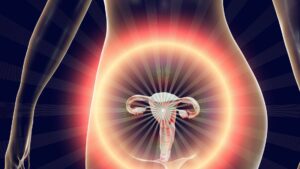For many years, it was believed that a person’s fat, also known as adipose tissue, sent information about stress and metabolism to the brain through hormones passively floating through the blood. But, a new study identified that sensory neurons carry a stream of messages from adipose tissue to the brain.
This study by Scripps Research scientists suggests that your brain is actively surveying your fat instead of passively receiving messages about it. Another illustration of how crucial sensory neurons are to health and disease in the human body.
Adipose tissues in mammals store energy in the form of fat cells. When the body needs energy, tissues release those stores. It also regulates a variety of hormones and signaling molecules that are connected to metabolism and appetite. Energy storage and frequently signaling malfunction in disorders like diabetes, fatty liver disease, atherosclerosis, and obesity.
Nerves extend into adipose tissue but suspected they weren’t sensory neurons that carry data to the brain. Most scientists instead proposed that the sympathetic nervous system—the network in charge of our fight-or-flight response, which activates fat-burning pathways during stressful situations and physical activity—was primarily responsible for the nerves in fat.
Attempts to clarify the types and functions of these neurons have been difficult; methods used to study neurons closer to the body’s surface or in the brain don’t work well deep in adipose tissue, where nerves are hard to see or stimulate.
Scientists developed two new methods to overcome these challenges. First, an imaging technique called HYBRiD turned mouse tissues transparent, which helped scientists better follow the paths taken by neurons as they entered adipose tissue. The team found that roughly half of these neurons originated in the dorsal root ganglia, the brain region from where all sensory neurons emerge, rather than the sympathetic nervous system.
Scientists later turned to a second new technique, which they named ROOT, to robe the role of these neurons in adipose tissue. Root stands for ‘retrograde vector optimized for organ tracing.’ The technique allowed scientists to selectively destroy small subsets of sensory neurons in the adipose tissue using a targeted virus and then observe what happened.
Yu Wang, a graduate student in the Ye and Patapoutian labs and the first author of the new paper, said, “This research was made possible by the way these new methods came together. When we started this project, there weren’t existing tools to answer these questions.”
“The experiments revealed that when the brain doesn’t receive sensory messages from adipose tissue, programs triggered by the sympathetic nervous system—related to the conversion of white fat to brown fat—become overly active in fat cells, resulting in a larger than normal fat pad with especially high levels of brown fat, which breaks down other fat and sugar molecules to produce heat. Indeed, the animals with blocked sensory neurons—and high levels of sympathetic signaling—had increased body temperatures.”
Co-senior author Li Ye, Ph.D., the Abide-Vividion Chair in Chemistry and Chemical Biology, said, “This tells us that there’s not just a one-size-fits-all instruction that brain sends adipose tissue. It’s more nuanced than that; these two types of neurons are acting like a gas pedal and a brake for burning fat.”
“The findings suggest that the sensory and sympathetic neurons might have two opposing functions, with sympathetic neurons needed to turn on fat burning and the production of brown fat, and sensory neurons required to turn these programs down.”
However, what messages the sensory neurons convey to the brain from adipose tissue remains elusive. Further study must determine what the neurons are sensing and whether other similar cells exist in additional internal organs.
Journal Reference:
- Wang, Y., Leung, V.H., Zhang, Y. et al. The role of somatosensory innervation of adipose tissues. Nature (2022). DOI: 10.1038/s41586-022-05137-7













